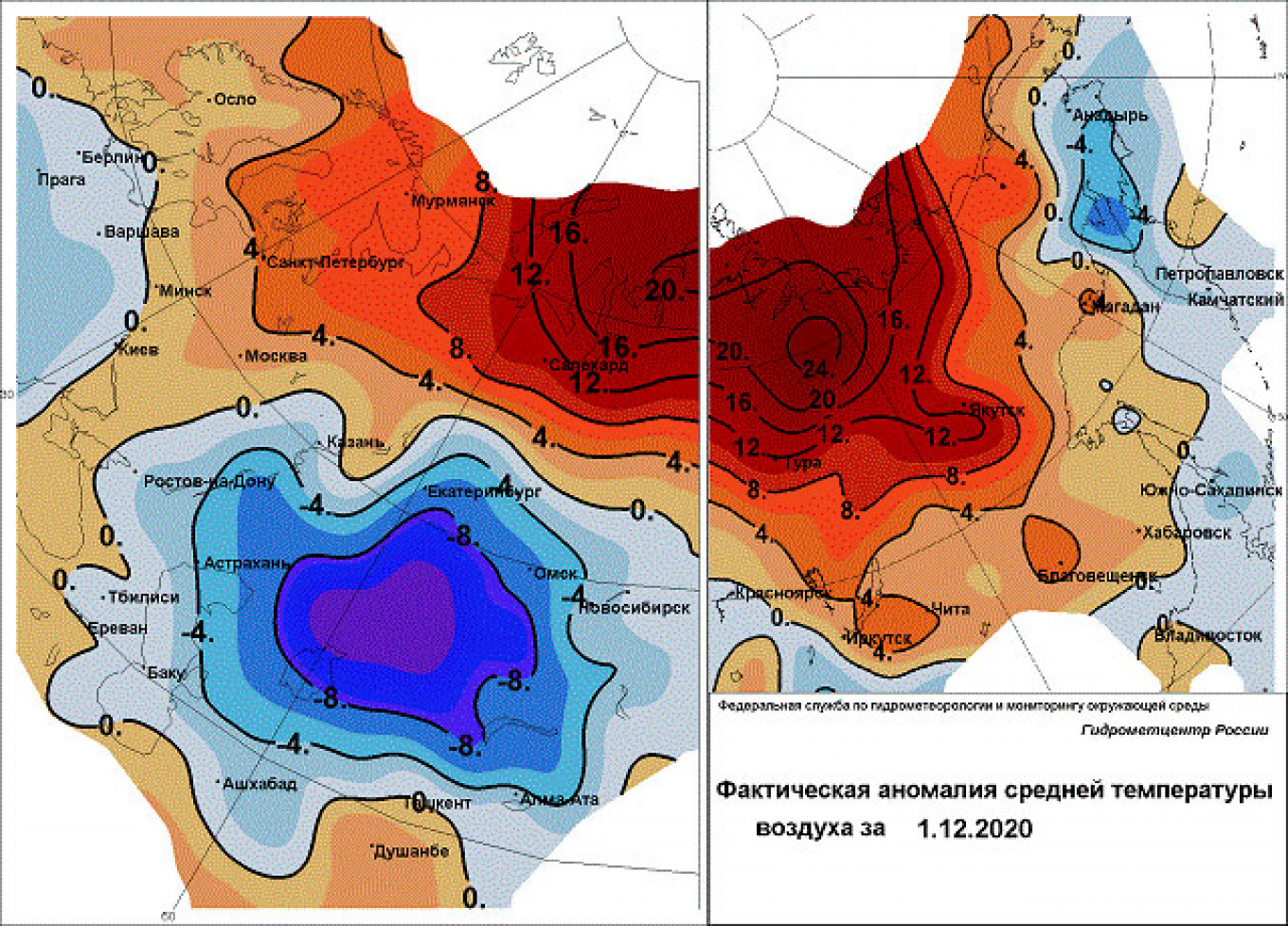As climate experts sound the alarm over record temperatures in Russia’s Arctic, the Christmas season is unlikely to be much different than the preceding months.
According to Russian meteorological service Roshydromet, the extraordinary Arctic heat of November was followed by temperature records in a number of places across the Russian north on the first day of December.
In the island of Bely, north of the Yamal Peninsula, the winter month started at 1.1 C, the highest-ever local temperature for Dec. 1. The same was the case in Dikson, a town on the Kara Sea coast, where the temperature was minus 0.6 C.

In Cape Chelyuskin, the northernmost point on the Russian mainland, the meteorologists measured minus 4.7 C, which is almost three degrees higher than the previous record for that day.
A temperature map by Roshydromet shows that parts of Arctic Siberia on Dec. 1 had a temperature deviation from normal of more than 20 C.
“These temperatures are very far from winter [cold] records of northern Siberia and Yakutia,” Roshydromet said.
According to the Russian state service, average temperatures along major parts of the Russian Arctic coast are now for a long period between 10-15 C above normal, and in November the deviation from normality in the region was set to 12 C.
The November temperatures follow a number of months with abnormal heat across the whole Arctic.
In October, the average temperature for the whole circumpolar Arctic was 6.7 C higher than normal, and in the Russian Arctic archipelago of Severnaya Zemlya the average October temperature was as much as 10 C above normal.
The melting of Arctic sea ice has also continued. According to the National Snow and Ice Data Center, average sea ice extent for October 2020 was the lowest-ever in the satellite record.
Sea ice levels increased through November, but still ended up as the second-lowest in the satellite record for the month, just above 2016.
The November average extent of 8.99 million square kilometers was 1.71 million square kilometers below the 1981-2010 average, the Snow and Ice Data Center said.
